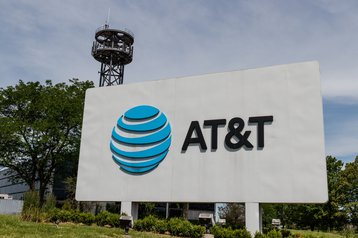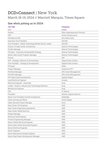AT&T has said that it does not intend to immediately remove lead cables from Lake Tahoe.
The company has hit back at Wall Street Journal's investigation, which last week revealed that AT&T, along with some other US telecoms companies, has been contaminating US water and soil with toxic lead cabling.
After the WSJ report, AT&T's shares fell to their lowest level in 30 years.
In a court filing earlier this week, AT&T repeated that it strongly disputes the findings by the publication, and argued that its lead-clad cables only "make up a small part" of its network.
The filing was made as part of an ongoing lawsuit against AT&T by the California Sportfishing Protection Alliance (CSPA), which claims that old AT&T cabling on the bottom of Lake Tahoe is a health risk because its lead sheath can degrade over time, releasing harmful levels of lead into the water.
US telecom cabling used lead from the 1880s, initially as a way to sheath and protect copper wires from exposure to the elements, because lead is very stable and does not rust.
Lead was then considered a state-of-the-art material, strong enough to guard the interior copper wires and provide the critical communications infrastructure the public relied on. These lead-sheathed telecom cables would gradually be phased out from the 1950s, but the installed cables have largely remained in place.
In the lawsuit, AT&T had initially agreed to remove lead cables in Lake Tahoe without admitting any wrongdoing, but it has now has backtracked, saying in the filing that it will leave them in place, for now, for further investigation.
"AT&T believes it is now in the public interest to leave the cables in place to permit further analysis by interested parties, including the US Environmental Protection Agency," said the telco.
"As detailed in the attached letter, the Journal’s assertions regarding Lake Tahoe are based on testing of water samples collected by the same divers that aided Plaintiff [the CSPA] in this litigation," AT&T said in its filing.
"Although AT&T has not been provided with the complete test results, the information reported by the Journal differs dramatically from the expert testing commissioned by AT&T. Under the circumstances, AT&T submits the responsible course of action is to develop a further record rather than remove the Lake Tahoe cables and work cooperatively with regulators and other stakeholders on a risk assessment."
In the immediate aftermath of the WSJ's revelations, the telco disputed the research, accusing the publication of flawed testing methodologies, while also being compromised by a conflict of interest.
The investigation caught the interest of US Senator Ed Markey earlier this week, who wrote a letter to USTelecom demanding answers regarding the report. USTelecom has until July 25, 2023, to respond to a series of questions.







